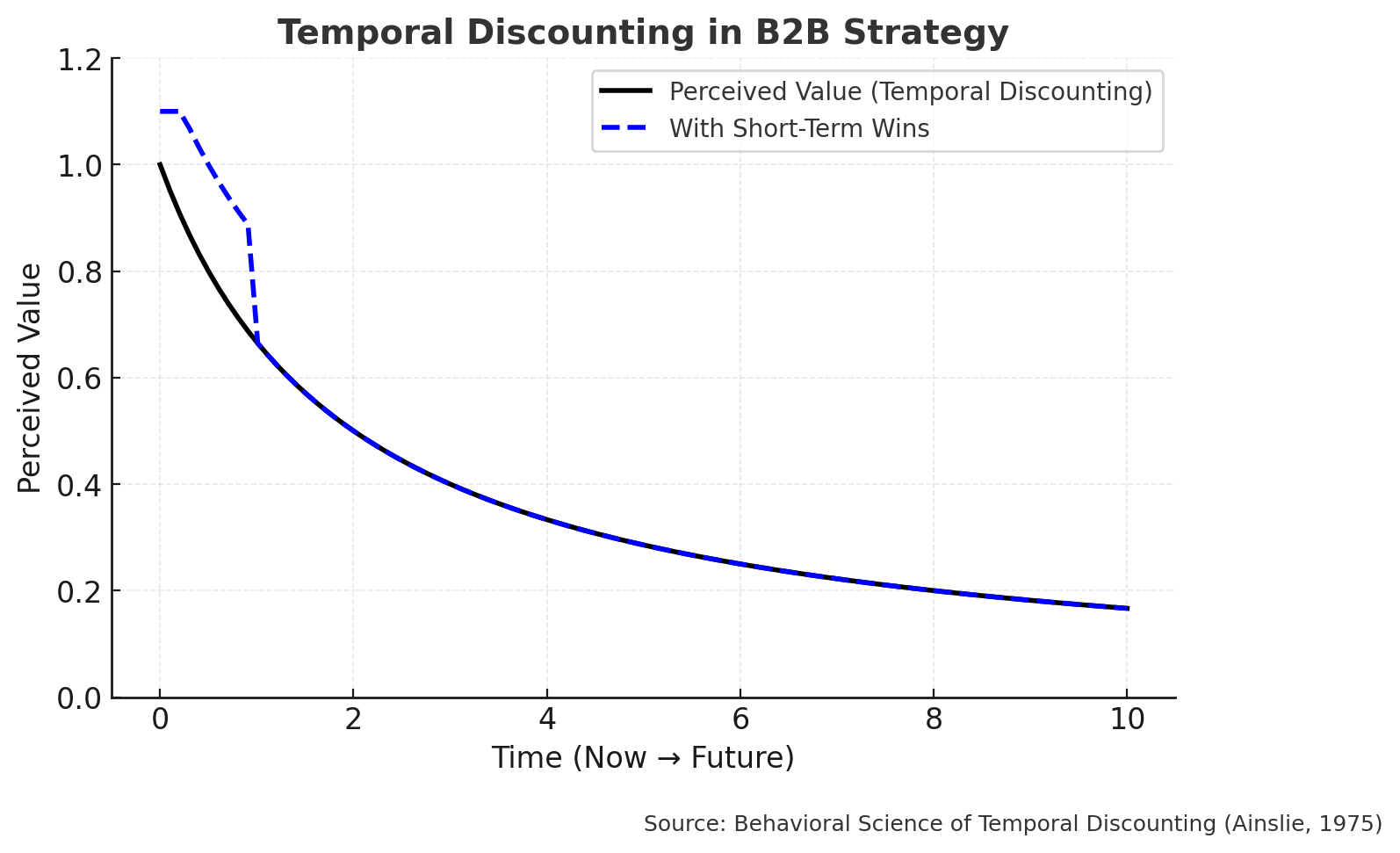Strategy Meets Psychology: Temporal Discounting and Why the Future Feels Too Far Away
Humans have a well-documented bias: we undervalue the future compared to the present. Known as Temporal Discounting, this principle explains why we delay saving for retirement or underinvest in long-term projects. The present feels tangible; the future feels abstract. For B2B companies, overlooking this bias can stall adoption, weaken positioning, and make it harder to sell long-term value propositions.
Commercial strategy provides a clear lens. Take enterprise software pricing. Many SaaS companies know their platform will save clients millions over several years — but that future payoff won’t close the deal alone. Salesforce, for example, accelerates adoption by emphasizing immediate ROI metrics like “time saved per rep” or “deals closed faster” in the first quarter of use. By collapsing future benefits into short-term wins, they overcome the tendency of B2B buyers to discount value that only shows up down the road.
On the brand side, consulting firms like McKinsey and Accenture position themselves not just as architects of “future transformation” but as enablers of visible progress today*. Instead of selling only on lofty five-year visions, they highlight case studies showing near-term efficiency gains, proof-of-concepts, or early cultural shifts. This storytelling strategy reduces the psychological gap between present and future by anchoring long-term credibility in immediate results clients can see and feel.
This is where behavioral science earns its keep. Commercial strategy asks, How do we capture value? Brand strategy asks, Why will people value us? Temporal discounting reminds us that clients — even in boardrooms — are human. They privilege today over tomorrow. Smart companies design strategies that respect that bias: front-loading immediate wins, while keeping the longer-term story in view.
*It’s worth noting that “visible progress today” only matters if it’s real. Some large consultancies — McKinsey and Accenture among them — have been criticized for producing massive decks without equipping clients with the tools or execution game plan to act on them. The risk? Over-promising long-term transformation while under-delivering short-term results.
